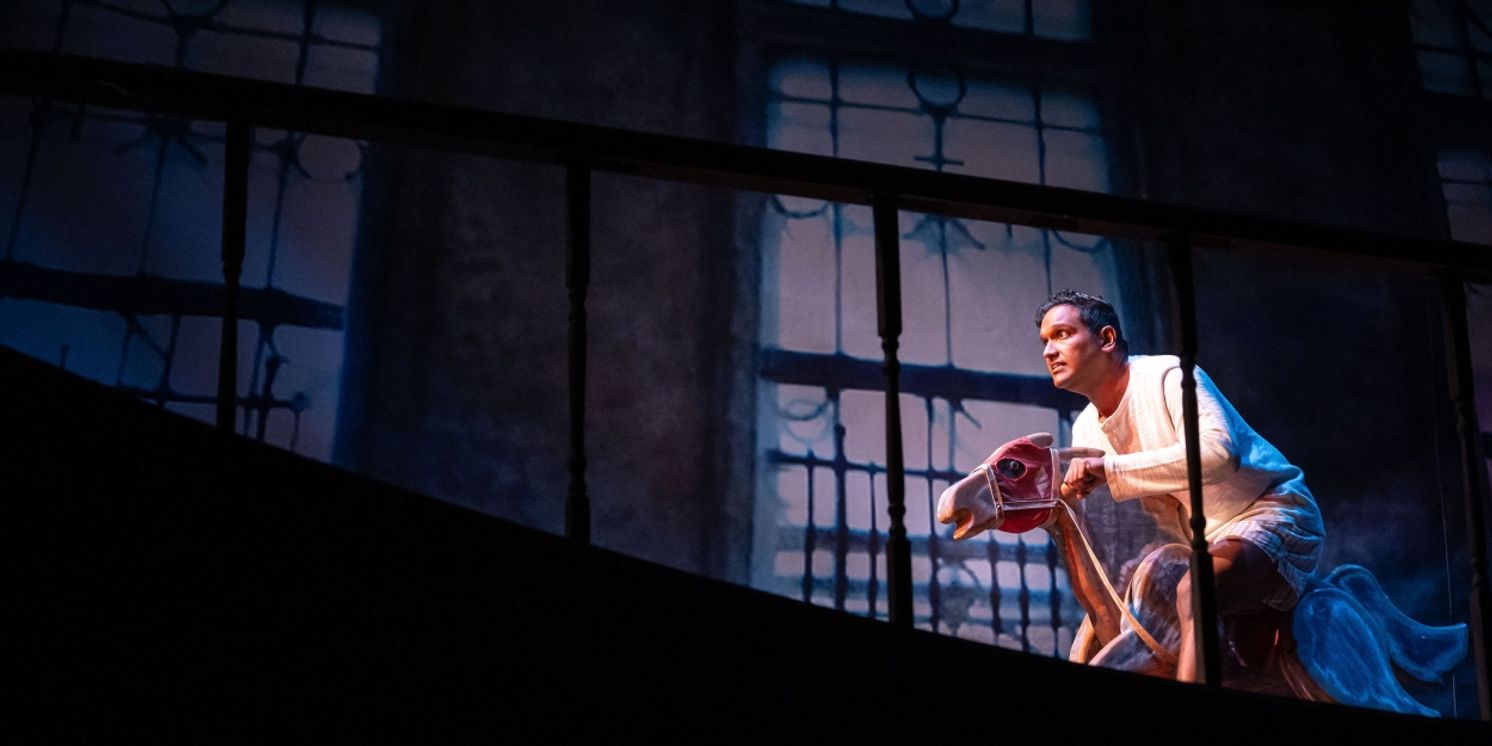Review: ROCKING HORSE WINNER at Streetcar Crowsnest
Powerful production of bite-sized opera proves less is more.

In Ursula K. LeGuin’s famous short story, “The Ones Who Walk Away From Omelas,” the citizens of Omelas are faced with a terrible bargain for their city’s prosperity. Everyone in Omelas can be rich and happy; that is, as long as they agree to keep one child in perpetual pain and misery. LeGuin’s philosophical parable might not have many stylistic similarities to the 1926 D.H. Lawrence short story on which Tapestry Opera’s production of Gareth Williams and Anna Chatterton’s ROCKING HORSE WINNER is based. However, my companion and I found ourselves thinking about it after watching the hauntingly moving opera, directed by Tapestry artistic director Michael Hidetoshi Mori, which uses a son’s desperate attempts to provide for his mother’s desire for wealth as a cautionary tale about the perils of a hunger that is never satisfied.
Chatterton’s libretto is fairly faithful to the Lawrence story, focusing on its main four characters: Paul’s beautiful mother Ava (Lucia Cesaroni), who thinks herself old and used up, has not met with the success in life she seeks. She considers herself “unlucky” to have married a man who seems incapable of making money, and firmly believes luck and money to be the only things which matter in life. Her sadness manifests itself in a coldness toward everyone around her, particularly her son; “It’s a mother’s job to love her children,” she sings, seemingly unable to access that love beyond a sense of duty. Her son’s odd behaviour and frailty don’t seem to help; Paul (Asitha Tennekoon) is anxious to see his mother smile, an expression he believes he can provoke by using his own “luck” to determine the winning horse in important races.
He does this by determinedly rocking back and forth on his rocking horse in the house attic until he reaches a transcendental state, crying out the horse’s name. In the original story, Paul is a child; this reimagined version presents him as a young man with developmental disabilities, which adds layers to his fraught relationship with his mother, as well as explaining more viscerally why some might be concerned by seeing his frenzied gyrations.
At first, the betting on horses is a secret between Paul and his caregiver, Bassett (Peter McGillivray), the only person who seems to really care for him, and who stores his winnings scrupulously in a safe. When Paul’s uncle Oscar (Keith Klassen) hears about his nephew’s equine ESP, however, things spiral as Paul’s use as a moneymaker answers the question of whether enough will really ever be enough.
The most compelling part of Williams and Chatterton’s bite-sized opera, which runs just over an hour, is the way its score translates the story’s spookiest bit of magical realism: in both, Paul hears the house speak to him in chorus, voices insistently demanding that “there must be more money.” Williams’ beautiful, delicate settings for quartet (Midori Marsh, Alex Hetherington, Anika Venkatesh, Korin Thomas-Smith) spin out like intricate clockwork, and resonate in the mind long after the hour is over.
The house set (Jawon Kang, from original designs by Camellia Koo) takes over most of the stage, with Paul’s life-sized, rough-hewn rocking horse in pride of place on the upper floor. The upstairs is dominated by projections of enormous windows that don’t let in any real light, as if they’re coated in a layer of Victorian chimney dust. The moody blue darkness of the ambient lighting by Echo Zhou gives the impression that the characters are trapped within the house, with Paul’s only sunlight coming from his brief jaunts to the racetrack. Ava must ascend a long, curving staircase to enter Paul’s domain, effectively making the characters feel even further from each other’s worlds.
The cast members have stunning voices, with Tennekoon shining as the intense, indefatigable Paul. His childlike need for even a moment of approval from his mother is heartbreaking. MacGillivray’s Bassett provides a much-needed injection of warmth in his deep-voiced concern for Paul, and Klassen is rakishly charming as the gambling uncle.
The melodic, accessible music often employs a constant, quick pizzicato beat from the string quartet. Under the music direction of Kamna Gupta, the quartet ably drives the songs forward as Paul’s uncle tells him to keep riding, to “never stop” until he gets where he’s going. They’re assisted by on-stage pianist Stéphane Mayer, who cleverly ducks out of the way when mom is “playing” the piano.
Cesaroni blazes with feeling around a central pit of emptiness; Ava’s aria, where she sings about being “bitten to the bone” by the demands of her life, is very powerful. Here, the direction and libretto do their best to highlight the unreliability of her narrative, such as her incongruous perception of herself as old, and her unspecified, singular woes. However, by changing the order of some events, the adaptation also villainizes the character, amping up her coldness and love of finery, and casting her issues as those of self-centredness and greed rather than depression, abandonment, and the fear of a gambling history in the family. In doing so, the show creates an interpretation that’s more Mommie Dearest than The Yellow Wallpaper, creating a more simplified moral message.
While the message may be a little simplified, the music and feeling of the show are both beautifully expansive. For those new to or intimidated by opera, this is a great starter show, with lush, creative musical lines and a poignant, relatable story. As we head into the Christmas season, where relentless capitalists, like Paul’s house, tell us “there must be more,” you might begin to wonder whether the world we live in has backed the right horse.
If only, you might think, we could ride away from Omelas.
Photo of Asitha Tennekoon by Dahlia Katz
Reader Reviews
Videos

